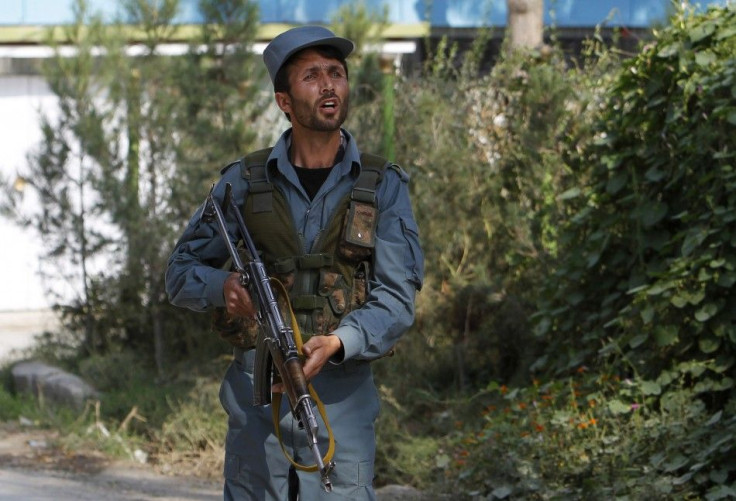Taliban Strikes U.S. Embassy in Kabul

At least three sites in Kabul, Afghanistan were attacked Tuesday morning, including the U.S. embassy.
Ten attackers, who are thought to be members of the Taliban, unleashed a wave of violence in the city, hitting specific targets with guns, rockets and bombs.
Five armed militants planted high up on a building next to the U.S. embassy fired down on the embassy with rockets and machine guns. At least three rockets were thought to have hit the building. Embassy employees were instructed to stay in doors, and there have been no reported casualties.
A small group of insurgents attacked the vicinity of the U.S. Embassy and International Security Assistance Force Afghanistan headquarters today, firing from outside the compound using small arms and rocket-propelled grenades. The attack started around 1:30 p.m. (local), NATO lead security group ISAF said in a statement.
Afghan National Security Forces and coalition forces immediately responded to the attack, and are still on the scene. Coalition forces are providing air support.
Local police and Black Hawk helicopters fired at the gunmen by the embassy, killing two. The other three are currently holed up inside the building, which is surrounded by Black Hawks and National Air Force Mi35 gunships.
Many news outlets are claiming that at least one Afghan officer was killed in the battle, but NATO insists that there are no reports of ISAF casualties at this time.
The ISAF also said that Afghan police killed a potential suicide bomber near the airport.
We have launched attacks on a road near the airport targeting police and two other areas in the west against security forces, Taliban spokesman Zabihullah Mujahid stated.
Additionally, NATO headquarters were attacked around the same time as the embassy.
Other reports from Kabul claim that police opened fire on a vehicle when it refused to stop. A bomb was also said to have been detonated near border police headquarters and at least three rockets are thought to have been fired at the parliament building, although the attacks cannot be confirmed.
Three hours after the initial attacks, an explosion was heard in the Wazir Akbar Khan neighborhood, which is home to the embassy.
The insurgency comes only two days after the tenth anniversary of Sept. 11, the tragic terrorist attack that directly lead to the United States' war in Afghanistan.
In June, President Barack Obama announced that 10,000 U.S. troops would be withdrawn from Afghanistan by the end of the year, with the final 30,000 removed by 2012.
We are witnessing that the Taliban try to test transition but they can't stop it. Transition is on track and it will continue, Anders Fogh Rasmussen, the secretary general of NATO, commented.
On Saturday, two Afghan civilians were killed and 77 U.S. troops wounded when the Taliban detonated a truck bomb at the Combat Outpost Sayed Abad in Wardak province.
The Taliban has said that it will not stop fighting until all foreign troops are out of Afghanistan.
Although it has the same name, the Taliban responsible for the attacks Tuesday is not the same Taliban as the one that operated in 2001, when al-Qaida attacked the United States. The Afghan Taliban government collapsed shortly after the U.S. invasion in 2001, making room for more militant iterations of the group, which have stronger ties to al-Qaida and other terrorist organizations than they do to the original Taliban.
The type of multi-staged attacks seen on Tuesday is being used with increasing frequency in Afghanistan, as well as by insurgent groups all over the world. To maximize casualties, militants will detonate one explosive and then wait for police and emergency personnel to respond before detonating a second.
Insurgents have also shifted their focus from civilian to government targets, with hopes of destabilizing the state or scaring foreigners out of their country.
© Copyright IBTimes 2025. All rights reserved.





















